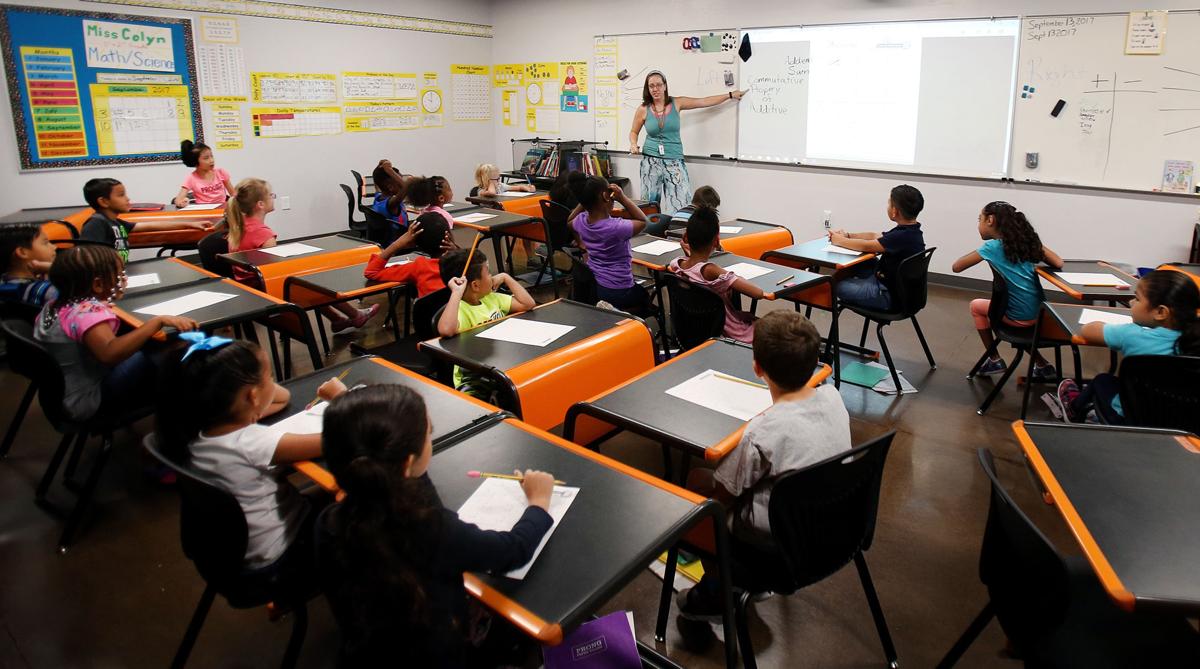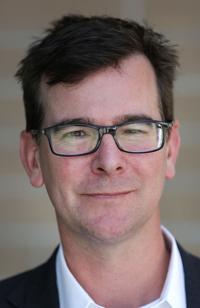Andrew Sterling thought BASIS Tucson was a teacher’s dream when he started working there in 2008. Class sizes at the midtown public charter school were small, teachers were experts with advanced degrees and students were bright and engaged, with few disciplinary issues.
“The kids were excellent – just amazing kids that came from seemingly a variety of backgrounds and variety of interests, quite quirky in a lot of ways,” said Sterling, who taught history and government.
Those quirky kids were the reason he later enrolled his daughter there for fifth grade. He wanted her to be surrounded by good peers. Plus, he’d get to watch her closely. But his concern was growing over the school’s changing climate.
BASIS, which started as a single Tucson charter school and grew into a network of educational facilities, began attracting national attention as an academic powerhouse with soaring test scores by the late 2000s. Riding that momentum, the company pushed to expand, adding charter and private schools nationally and internationally and multiple layers to its corporate structure.
And the pressure grew for students to score even higher to fuel that growth.
Sterling saw his students drowning in schoolwork, which increasingly focused on test results. Some students were built for it, he said. Most struggled. Many transferred out, unable to keep up.
There was a physical change, too.
BASIS Tucson North, 5740 E. River Road.
In 2012, BASIS added a new custom-designed campus in the wealthy Catalina Foothills on the north side of Tucson. The school added more grades between the two campuses, and hundreds more students enrolled. By then, a new management arm of the BASIS corporation had taken over school operations.
Despite his concerns, Sterling stayed, hoping to help his struggling students. Meanwhile, BASIS kept growing.
BASIS today is perfectly poised to capitalize on growing efforts across the country to turn public education into big business. Although it is not the largest charter school network in the U.S., BASIS is one of the only to have successfully expanded into private and international operations. None of the five largest charter networks concurrently operate private schools.
Peter Bezanson, CEO of BASIS Education
BASIS expanded rapidly, mostly by leveraging its public school status to borrow hundreds of millions of dollars, ultimately paid by taxpayers, while also expanding its private school operations. And in its race to the top, critics say BASIS systematically shortchanged the students who are the most costly to educate, including those with disabilities.
Despite continued criticisms – especially regarding what some consider “cherry-picking” of students, a common complaint about some charter schools – BASIS has continued to attract parents looking for something more than a traditional public school for their children.
“We have a laser-like focus on academics,” said Peter Bezanson, CEO of BASIS.ed, the corporate arm that manages BASIS schools.
As school choice – a movement to give students access to more public education options – continues to gain momentum, companies such as BASIS are seen as the solution to public education’s ills. It brought together people from different ends of the political spectrum – former U.S. House Speaker Newt Gingrich and the Rev. Al Sharpton – to jointly tour the BASIS Tucson campus in 2009. BASIS is also touted as a model for public education by Arizona Gov. Doug Ducey.
This phenomenon has spurred a nationwide debate.
President Donald Trump and his billionaire education secretary, Betsy DeVos, whose family are Republican megadonors, are among the biggest champions of school choice.
“I’m opposed to any parents feeling trapped or, worse yet, feeling that they can’t offer their child the education they wish they could,” DeVos said in a speech at the Brookings Institution in March. She compared school choice with consumers picking Uber or Lyft over traditional taxis.
“What they are trying to persuade the American public of is that public schools don’t belong to the public, that they’re consumer items,” said Diane Ravitch, a former assistant education secretary under President George H.W. Bush, who once advocated for school choice herself.
Back then, Ravitch envisioned choice as schools within schools that could serve as labs for educational innovation, she said. But school choice became synonymous with big businesses, she said, and big businesses brought about legally questionable practices such as conflict of interest, nepotism and putting their own interest above those of the public.
* * *
Read the series:
Part 2: Public schools, private rules
Part 3: "Best school" -- for some
Yoohyun Jung produced this story as a Reveal Investigative Fellow. The fellowship, supported by the W.K. Kellogg Foundation and Democracy Fund, provides journalists of color support and training to create investigative reporting projects in partnership with their news outlets. She can be reached at 573-4243 or yjung@tucson.com. Follow her on Twitter: @yoohyun_jung.







